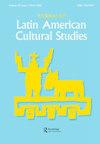The Subject Is Still There. Judicial Statements and Mexican Political-Military Organizations in the Seventies
IF 0.3
4区 社会学
Q4 CULTURAL STUDIES
引用次数: 0
Abstract
This article analyses the judicial statements of members of political-military organizations that were obtained by agents of the national security and intelligence institution Dirección Federal de Seguridad (Federal Security Department; DFS) during the seventies. The analysis proposes that the conditions in which these documents were produced, as well as their dialogic and uneven nature, brought about narratives of the lives of the detainees that may be used as an index to understand certain aspects of these militants’ process of subjectivation. For example, the heterogeneity of their social origins and the diverse spaces about which they spoke, as a way to account for their political trajectory prior to their participation in armed militancy, and how they conceptualised both the organisation and their militancy. At the same time, it is also possible to find certain traces about the DFS agents who interrogated them: their bias against the militants, the aspects and features of the lives of the detainees that were inaudible to them. The corpus of DFS statements, as a discourse, provides a useful resource for problematising our conception of who the militants and agents of repression were, and for broadening the history of Mexico’s recent past.主题还在。70年代的司法声明与墨西哥政治军事组织
本文分析了国家安全和情报机构Dirección Federal de Seguridad(联邦安全部;DFS)的特工在70年代获得的政治军事组织成员的司法陈述。分析表明,这些文件的制作条件,以及它们的对话性和不均衡性,导致了对被拘留者生活的叙述,可以作为理解这些武装分子主观化过程某些方面的指标。例如,他们社会出身的异质性和他们所谈论的不同空间,以此来解释他们在参与武装战斗之前的政治轨迹,以及他们如何将组织和战斗概念化。与此同时,还可以找到审问他们的外勤部特工的某些痕迹:他们对武装分子的偏见,被拘留者生活中听不见的方面和特征。DFS的声明集作为一种话语,为我们对武装分子和镇压人员的概念提出质疑,并拓宽墨西哥近代历史提供了有用的资源。
本文章由计算机程序翻译,如有差异,请以英文原文为准。
求助全文
约1分钟内获得全文
求助全文

 求助内容:
求助内容: 应助结果提醒方式:
应助结果提醒方式:


